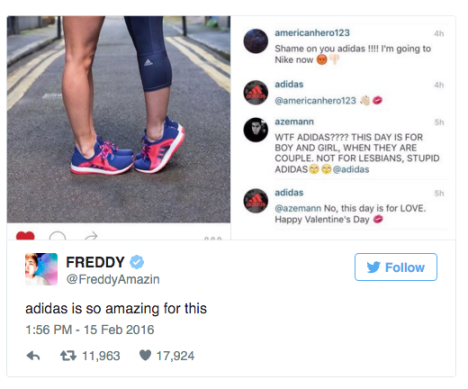Morning Update: Adidas baits homophobes; Sports Illustrated goes VR; BBC to merge radio and TV; Stephen Fry quits Twitter
To celebrate Valentine’s Day on Sunday, Adidas posted this photo to its Instagram account, with the caption: “The love you take is equal to the love you make.”
The photo shows what appears to me a same-sex female couple in an embrace. The image has amassed more than 51,000 comment since it was posted. Sadly, some of them were homophobic in nature. But Adidas’ social media team was ready with a sassy response:


